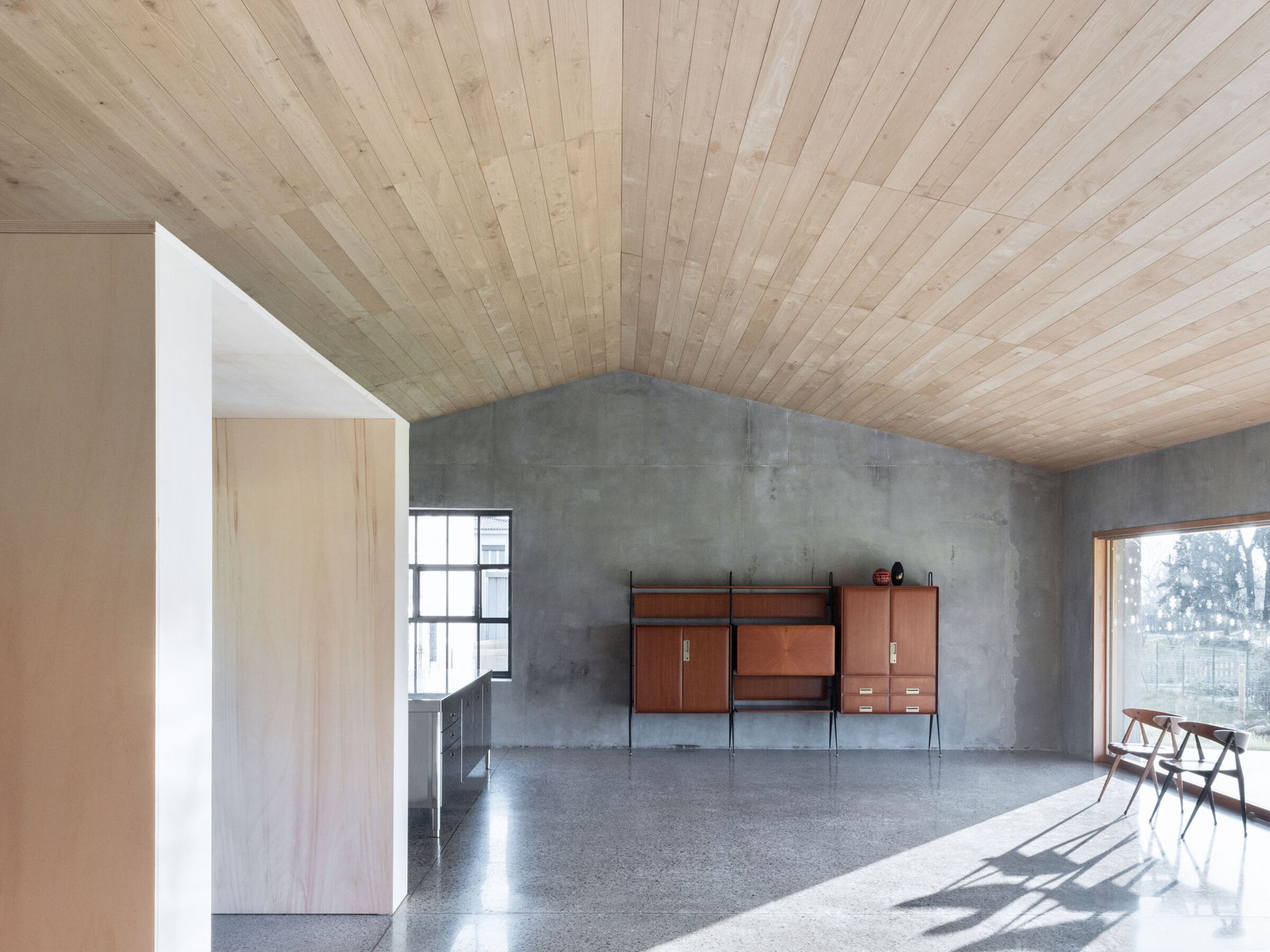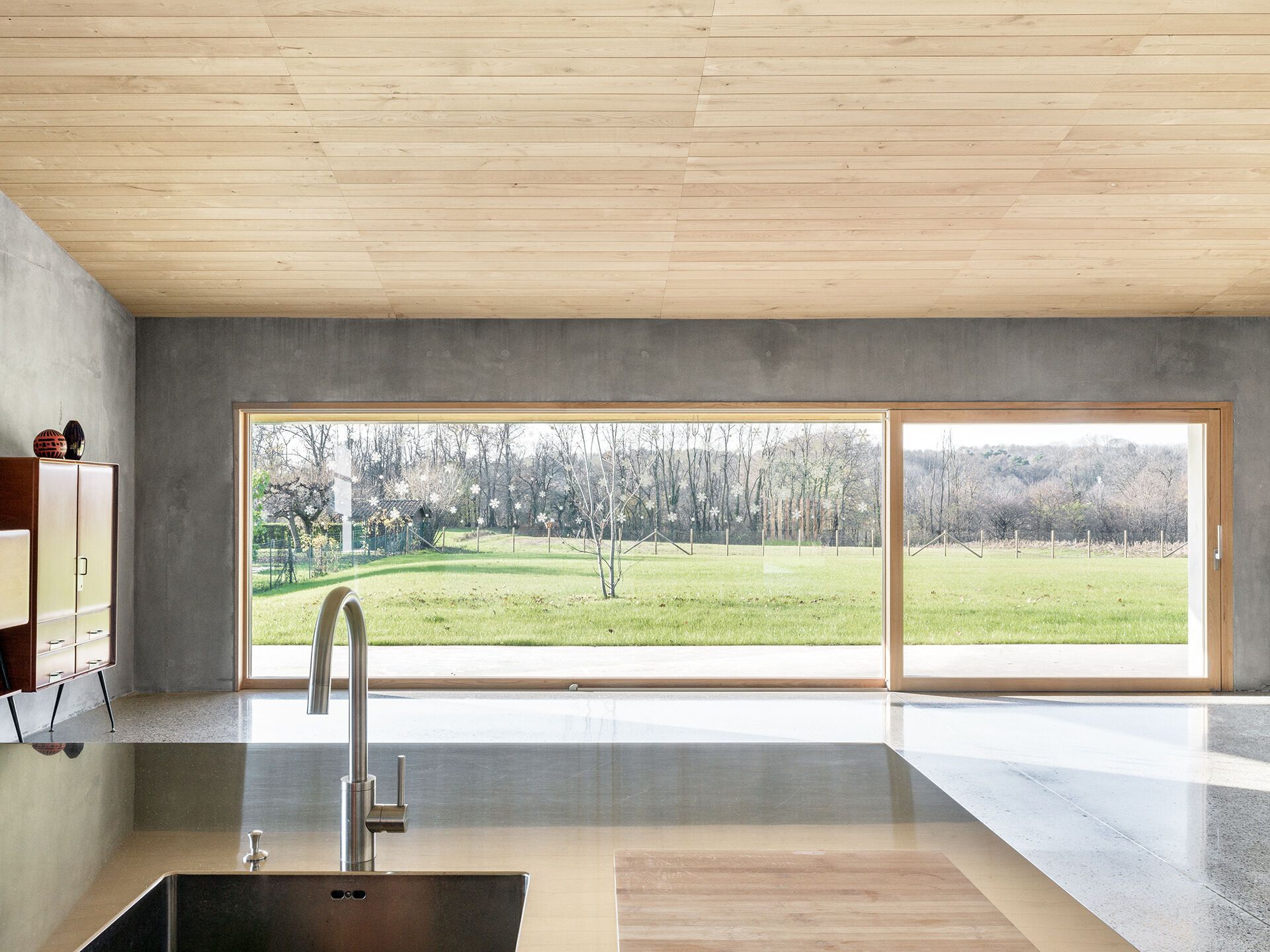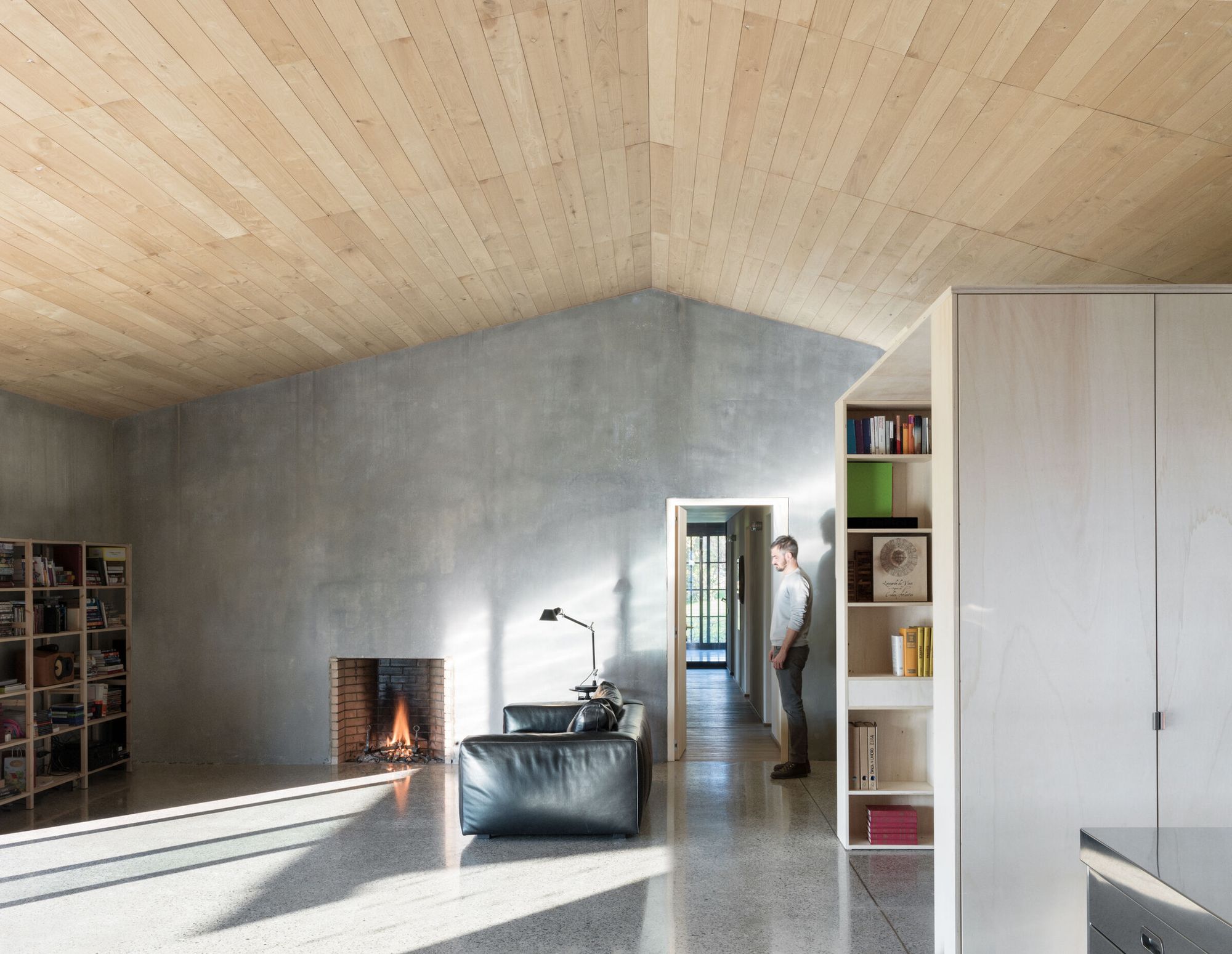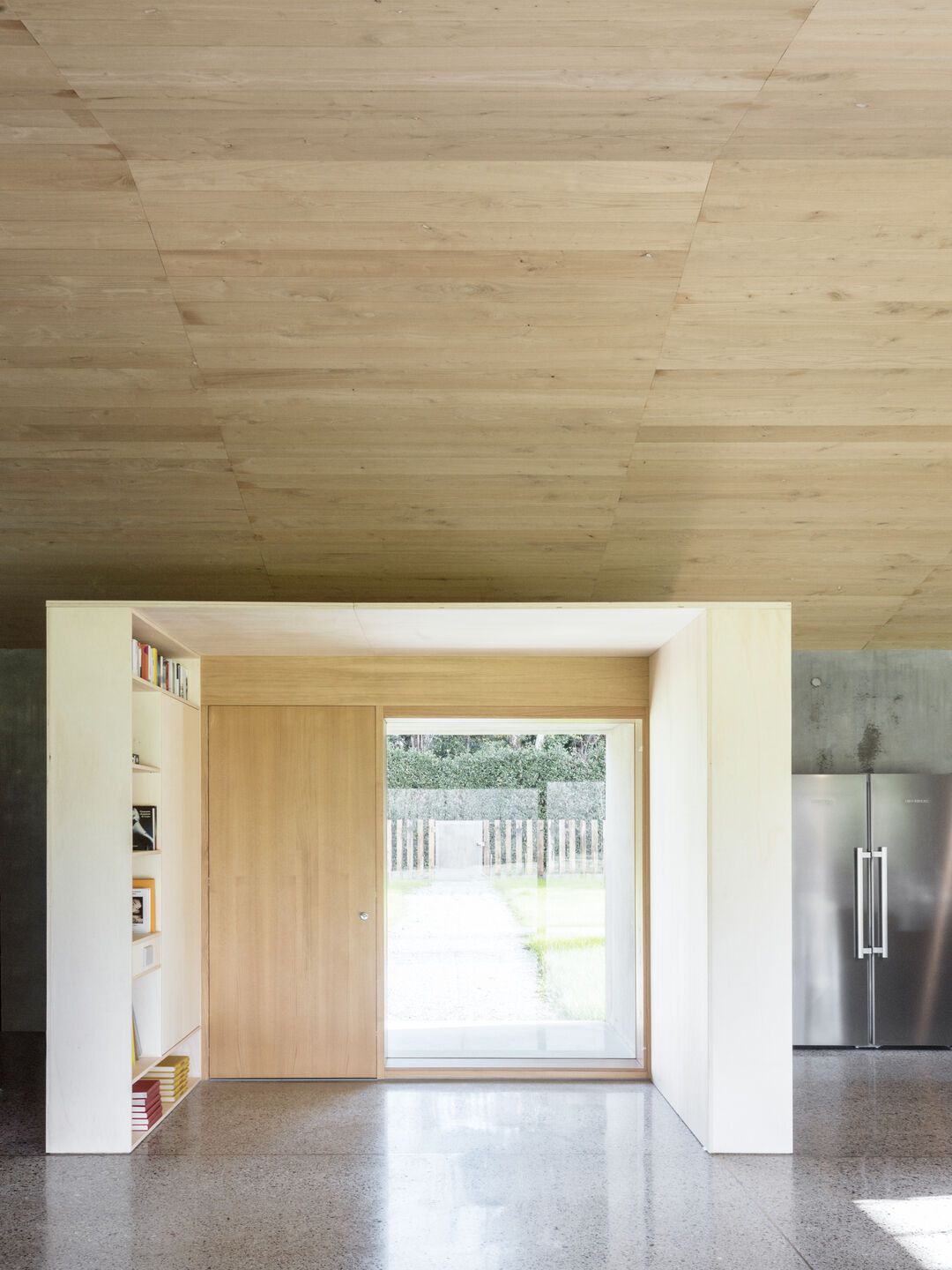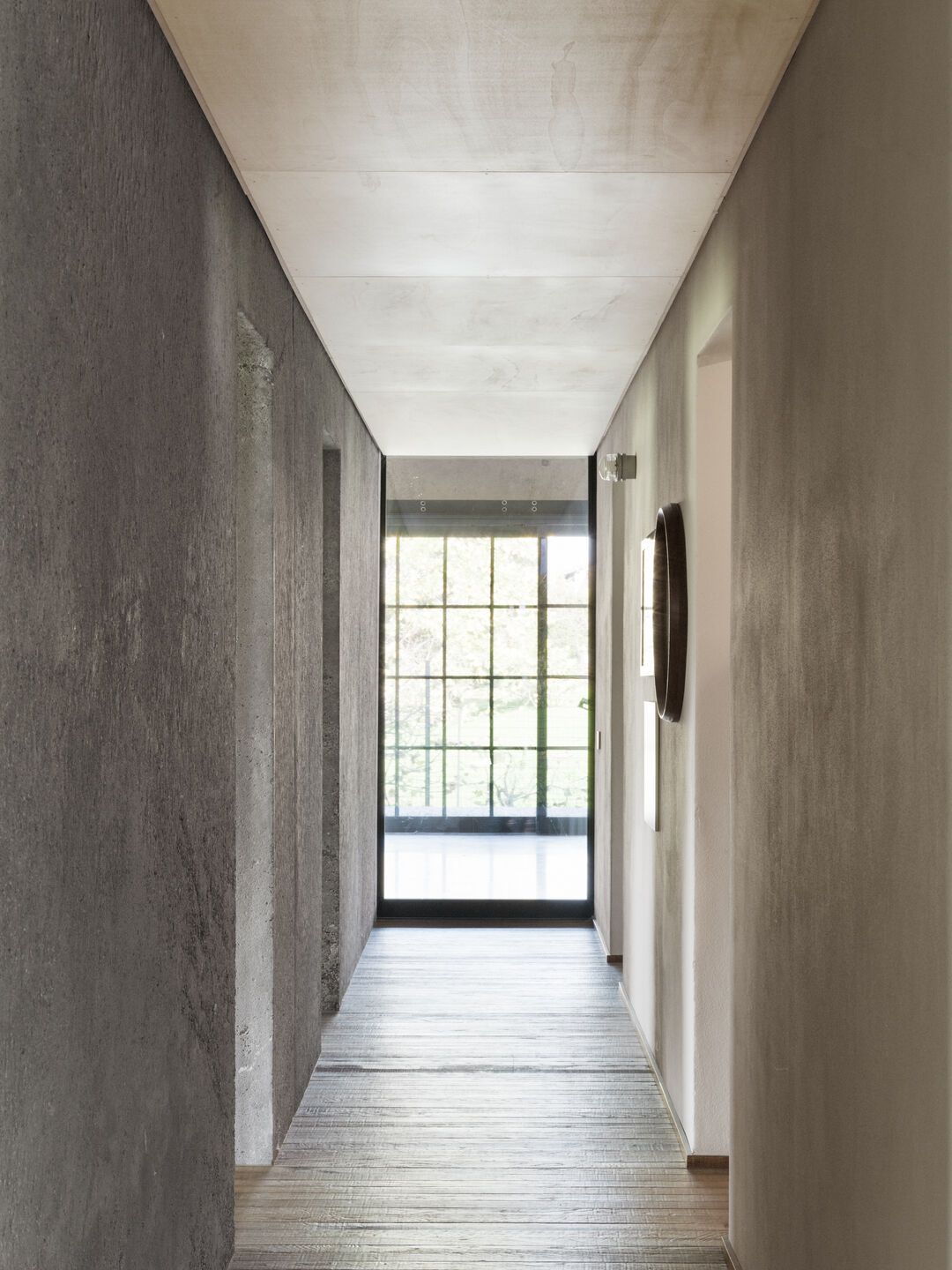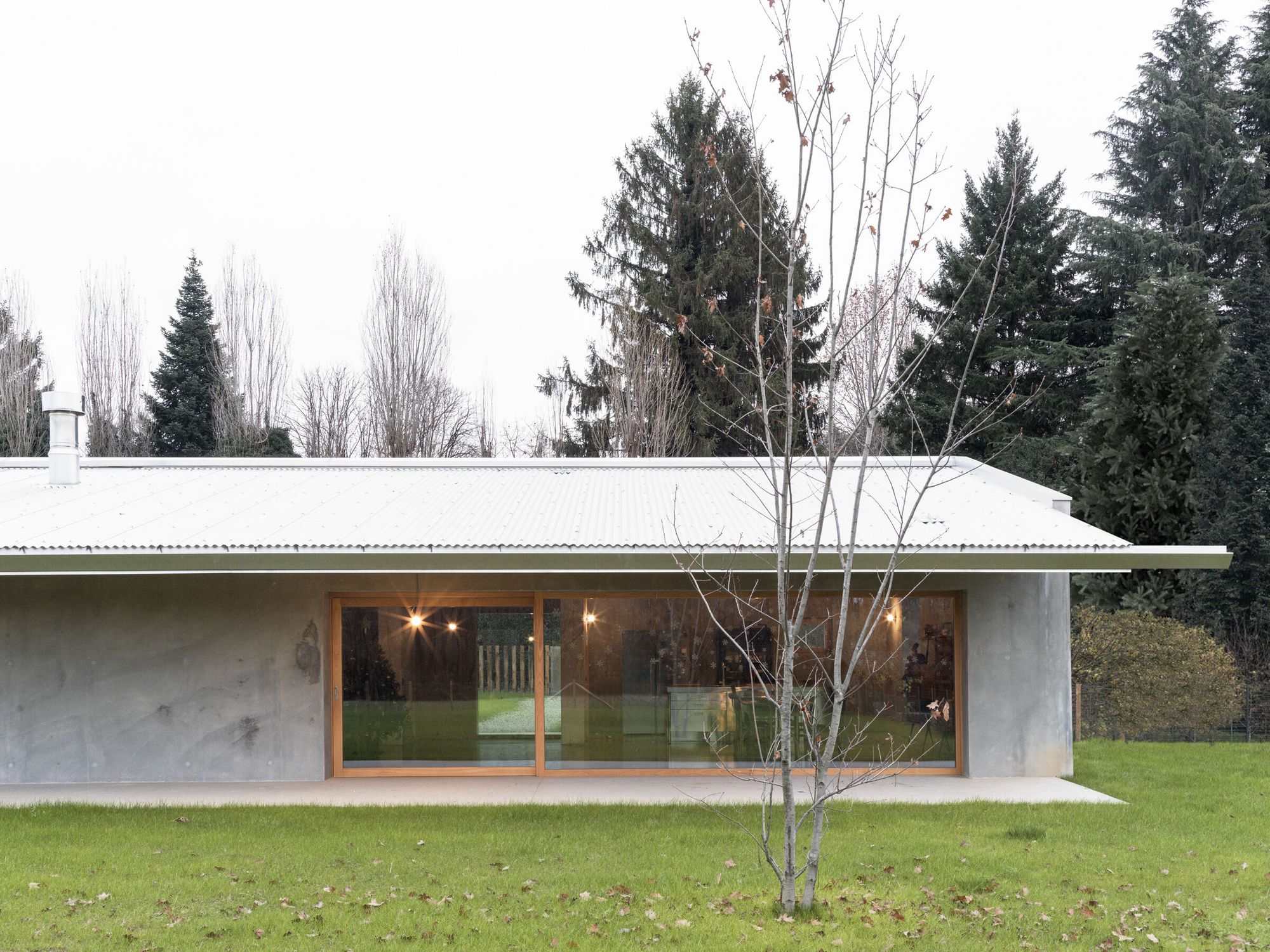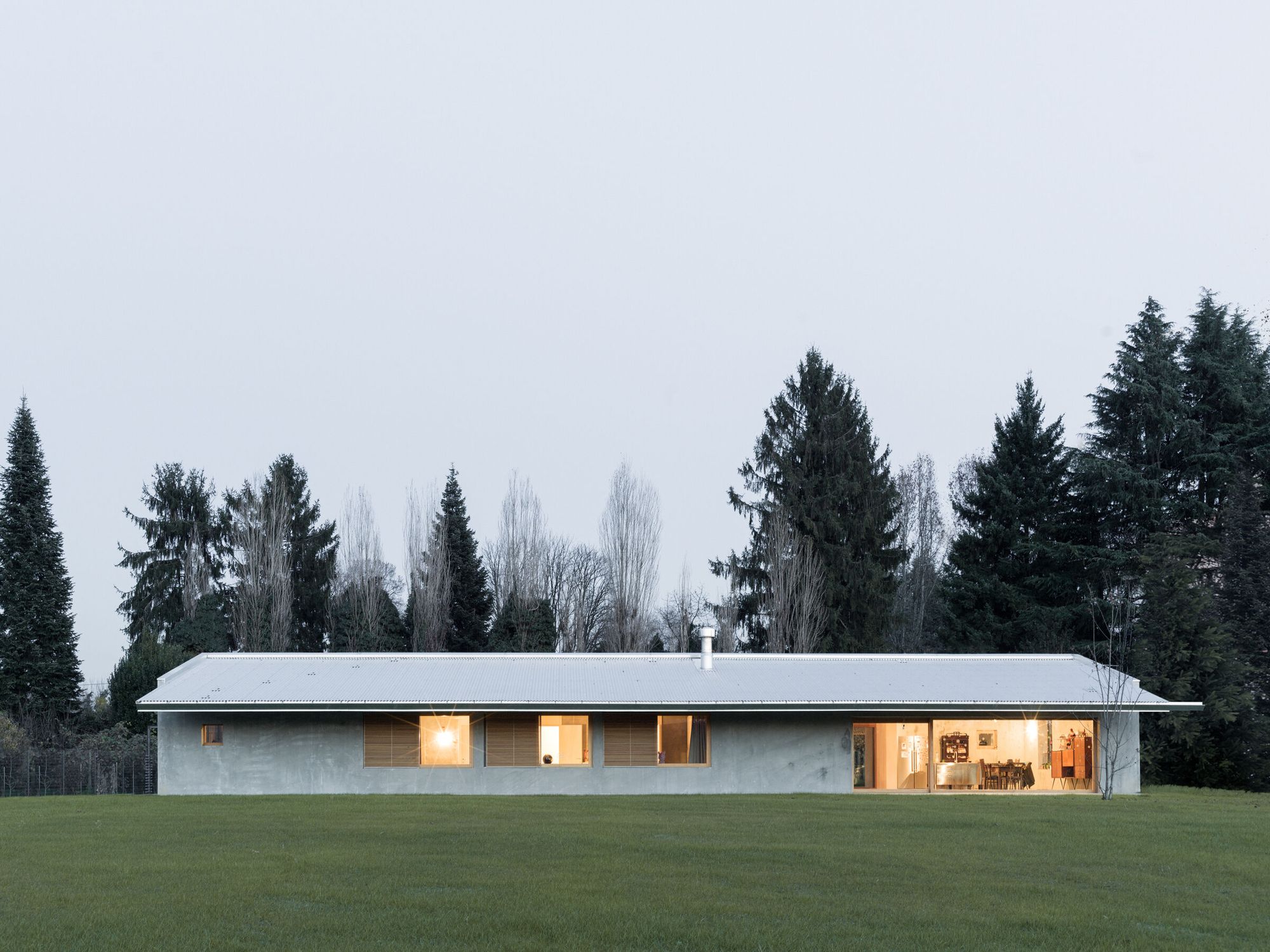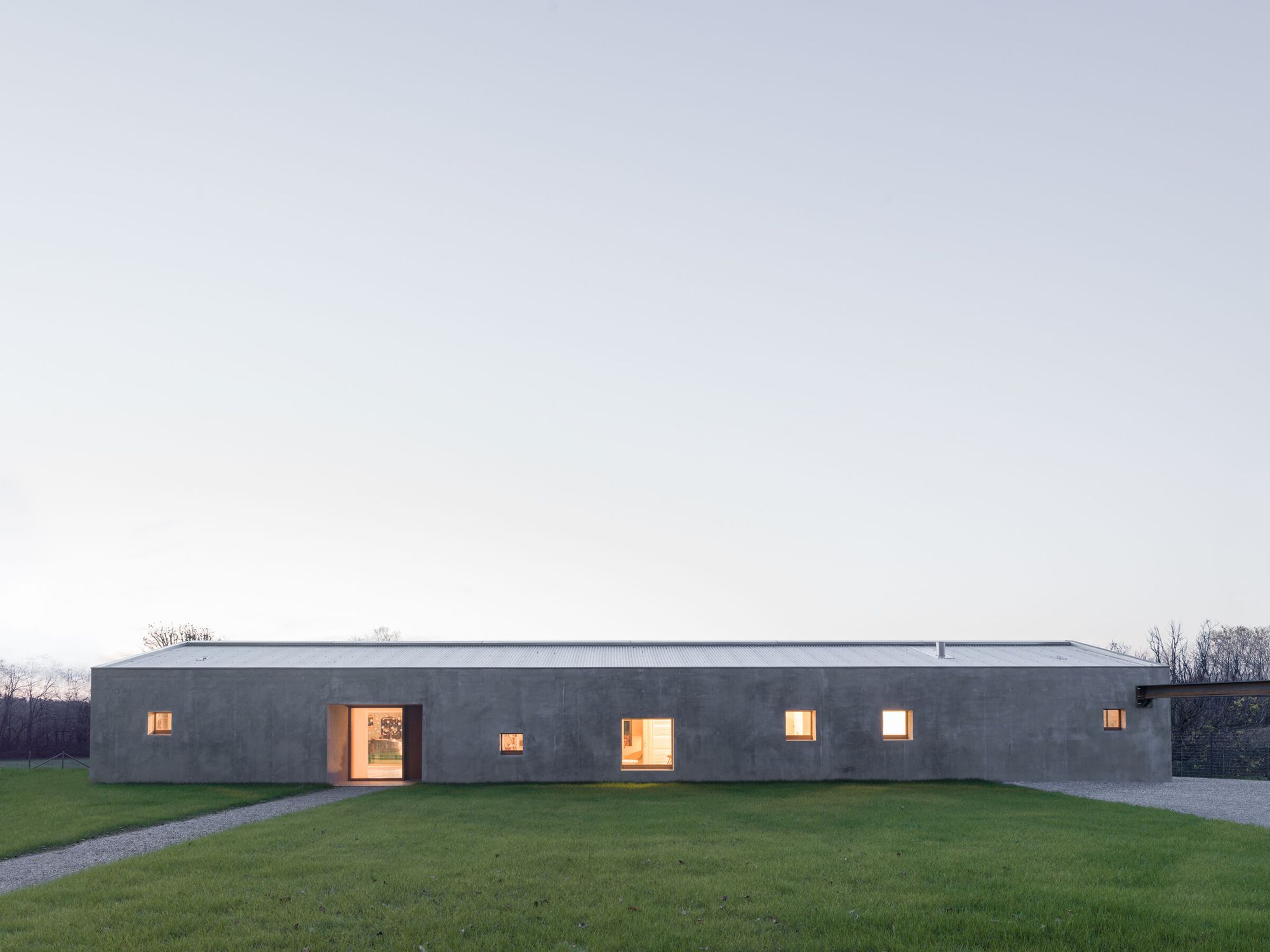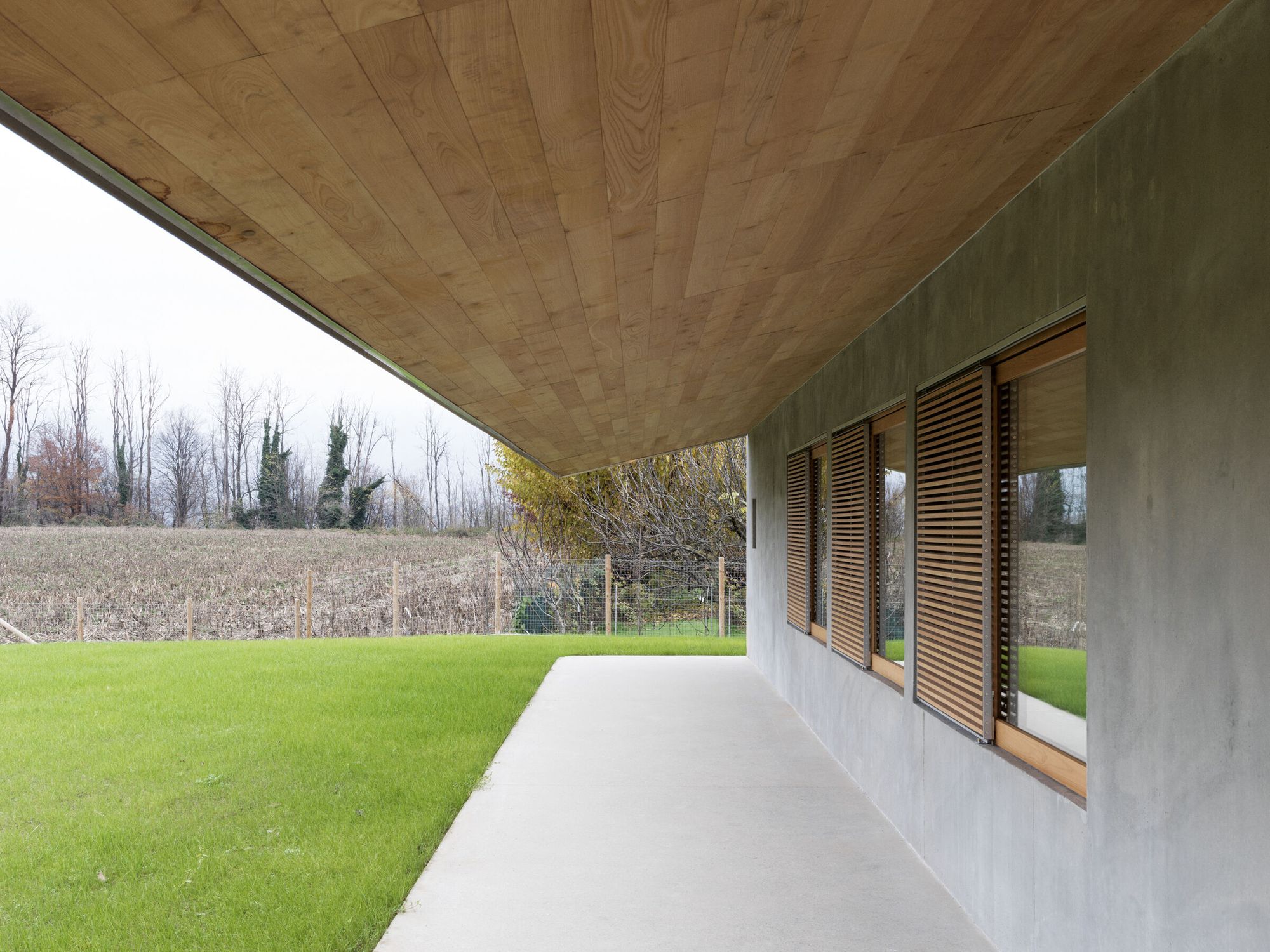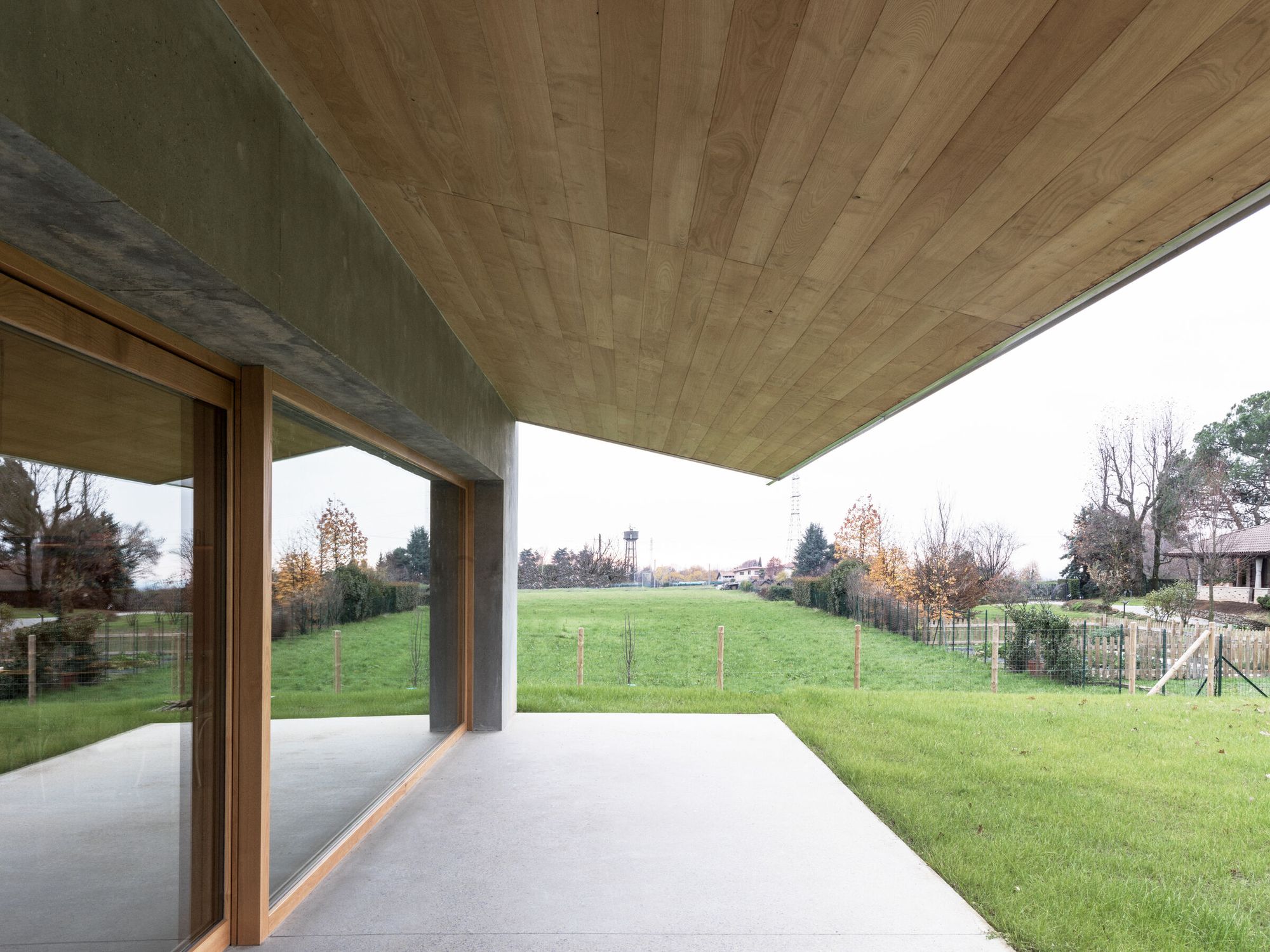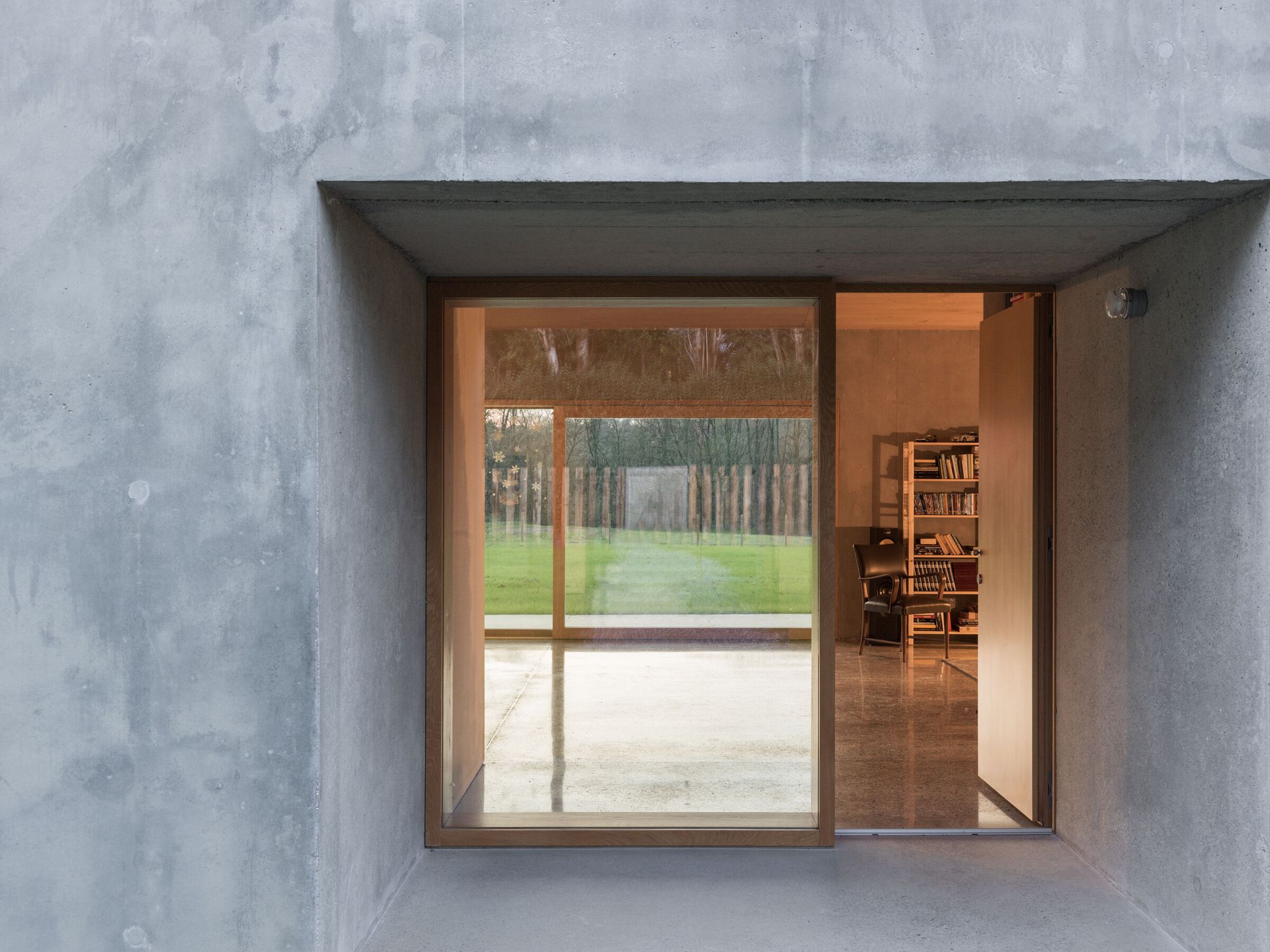ELL House is a minimal residence located in Carugo, Italy, designed by Marco Ortalli Architect. The rectangular lot opens to the west towards the Brughiera Briantea Park, therefore very interesting from a natural point of view. The desire of the client, a young couple with a daughter, was to have a concrete house. It was decided to place the volume parallel to the small municipal road, adjacent to the building limit allowed by municipal legislation towards the park.
The building occupies the entire lot in a transversal direction and is far from the two borders to the north and south of the minimum measures allowed by law. The exposure is east-west, with two large spaces (one living room, dining room, kitchen, fireplace and the other work area and garage) passing on the short north / south sides. On the west side there are three bedrooms and on the east side the services (bathrooms, laundry). The two through rooms have reinforced concrete walls and exposed roofs, while in the service areas and bedrooms the walls are plastered and the ceiling lowered.
The corridor has load-bearing walls in sandblasted reinforced concrete. The openings are different on the four facades; small and square on the east side (service area) with the exception of the hole that indicates the entrance; always square but larger in size for the three bedrooms to the west, which also overlooks a long window that illuminates the pass-through rules of the living / dining room. On the two north and south facing facades of industrial glass windows. The internal spaces are differentiated between the public and private parts, from the volumetric point of view, of the materials and finishes.
In the first area, the ceilings are with an exposed sloping pitch covered with chestnut slats, the floor in smooth concrete and the walls in exposed reinforced concrete, in the private areas, flat ceilings with chestnut slats and plaster walls. The fence has three different types: in wooden sleepers towards the road, in steel cables and climbing plants on the north side up to the volume and in wooden stakes (Ø 6) towards the agricultural part.
Photography by Marcello Mariana
